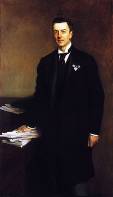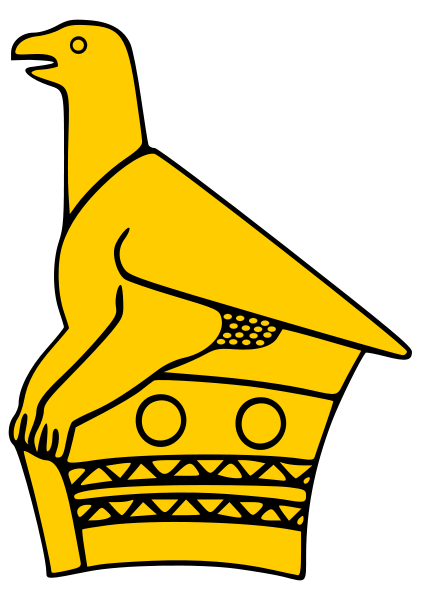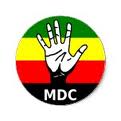Pioneer Days
Where was the Reform Committee during all of this?
The conspirators were forced into some sort of action. Organised into a Revolutionary Committee, they established a measure of control over the city but they never openly rejected the authority of the Kruger government. Instead they entered into negotiations with Kruger and demanded reforms. They took no military action, leaving Afrikaners forces free to take the necessary steps to contain the invasion.
What was the immediate fallout?
Rhodes was forced immediately to resign as Prime Minister of the Cape. Robinson did go to Johannesburg – but as a petitioner, asking (one could say begging) for reforms for the uitlanders, convincing them to surrender to the Transvaal government and requesting mercy for the invaders. Kruger, for his part, acted admirably, exercising great wisdom and generosity. Despite high feelings in the Republic, the lives of the raiders were spared and they were handed over to the British for punishment. Members of the Reform Committee (including Col. Frank Rhodes and John Hays Hammond) were tried for treason and some were sentenced to death. All the sentences were eventually commuted and the rebels released from prison after a relatively brief time. The Transvaal government was paid almost £1 mln in compensation by the BSAC.
Any wider consequences?
The Raid left the entire British Conservative Government in a weak position. While the invasion was underway, Colonial secretary Chamberlain remarked that "if this succeeds it will ruin me. I'm going up to London to crush it". He swiftly travelled by train to the Colonial Office, ordering Robinson to repudiate the actions of Jameson and warned Rhodes that the Company's Charter would be in danger if it were discovered the Cape Prime Minister was involved in the Raid. Chamberlain therefore instructed local British representatives to call on British colonists not to offer any aid to the raiders and denied all involvement with the plot. In June 1896, Chamberlain offered his resignation to Salisbury, having shown the Prime Minister one or more of the cablegrams implicating him in the Raid's planning. Salisbury refused to accept the offer, possibly reluctant to lose the government's most popular figure. Salisbury reacted aggressively in support of Chamberlain, supporting the Colonial Secretary's threat to withdraw the BSAC charter if the cablegrams were revealed. Accordingly, Rhodes refused to reveal the cablegrams, and as no evidence was produced showing that Chamberlain was complicit in the Raid's planning, the Select Committee appointed to investigate the events surrounding the Raid had no choice but to absolve Chamberlain of all responsibility.
Jameson on Trial by Mary Krout
Dr. Jameson was very grave and he, alone, was somewhat ill at ease. As he entered the court room a dark flush mounted to his forehead, which slowly faded as he walked to his chair and seated himself with great deliberateness. He was a man somewhat below medium height, with a huge head carried a little to one side, showing a remarkable breadth of brow, the eyes were large, dark and sufficiently expressive, when not concealed by the heavy drooping lids that were frequently half, or wholly, closed; the nose was prominent and large and rather symmetrical, the chin and mouth indicated decided firmness; the whole expression and demeanour of the man evinced fearlessness that would be disposed to express itself in deeds rather than words. He, too, was carefully dressed in a dark frock coat and trousers, a spotless, white necktie and pale grey gloves - the conventional morning dress of an English gentleman. He walked with a heavy inelastic tread and a slightly swinging carriage, and sat much of the time obliquely in his chair, one cheek resting upon his elegantly gloved hand; his glance was often cast down or fixed at rare intervals upon his counsel, Sir Edward Clarke; not once during the day, so far as I could observe, did he give more than a passing look at the witnesses upon the stand; to whatever was being drawn out of them he seemed quite indifferent, and, except for that first dull flush, he was equally oblivious of the spectators about him to whom he was a manifest object of interest. Such was the hero of one of the most daring raids in all the annals of border warfare; to all appearance a quiet, modest gentleman, in faultless and fashionable dress, with civilian stamped upon him from head to foot, and who would have been recognized anywhere as the circumspect, model family physician. He seemed pre-eminently a man to whom healing of wounds was far more congenial and better suited than blood-letting with Maxim guns and Lee-Metford rifles, after the manner which he had so rashly undertaken.
Was Chamberlain as innocent as claimed?

In 2002, The Van Riebeeck Society published Sir Graham Bower's Secret History of the Jameson Raid and the South African Crisis, 1895–1902, adding to growing historical evidence that the imprisonment and judgement upon the Raiders at the time of their trial was unjust, in view of what has appeared, in later historical analysis, to have been the calculated political manoeuvres by Chamberlain and his staff to hide his own involvement and knowledge of the Raid. Bower accuses the Colonial Secretary of “brazen lying” to parliament, and of what amounted to forgery in the documents made public for the inquiry.
Is it really a prime cause of the Second South African War?
The Jameson Raid further soured relations between Britain and Kruger's republic, and brought the two sides a step closer to war. In the end, the Union Jack would fly over Johannesburg after all, although it took nearly three years and half a million men to achieve this. Ill feeling was further heated by the "Kruger telegram" from the German Emperor, Kaiser Wilhelm II. It congratulated Paul Kruger on defeating the "raiders", and also appeared to recognize the Boer republic and offer support. The emperor was already perceived as anti-British, and a naval arms race had started between Germany and Britain. Consequently, the telegram alarmed and angered the British. Transvaal began importing large quantities of arms and an alliance was signed between Transvaal and the Orange Free State in 1897. Jan C. Smuts wrote in 1906 of the Raid, "The Jameson Raid was the real declaration of war... And that is so in spite of the four years of truce that followed... [the] aggressors consolidated their alliance... the defenders on the other hand silently and grimly prepared for the inevitable."
Sourced from the Zanj Financial Network 'Zfn', Harare, Zimbabwe, email briefing dated 10 January 2011


 South Devon Sound Radio
South Devon Sound Radio Museum of hp Calculators
Museum of hp Calculators Apollo Flight Journal
Apollo Flight Journal Apollo Lunar Surface Journal
Apollo Lunar Surface Journal Cloudy Nights Classic Telescopes
Cloudy Nights Classic Telescopes The Savanna - Saffer Shops in London
The Savanna - Saffer Shops in London Linux Mint
Linux Mint Movement for Democratic Change
Movement for Democratic Change